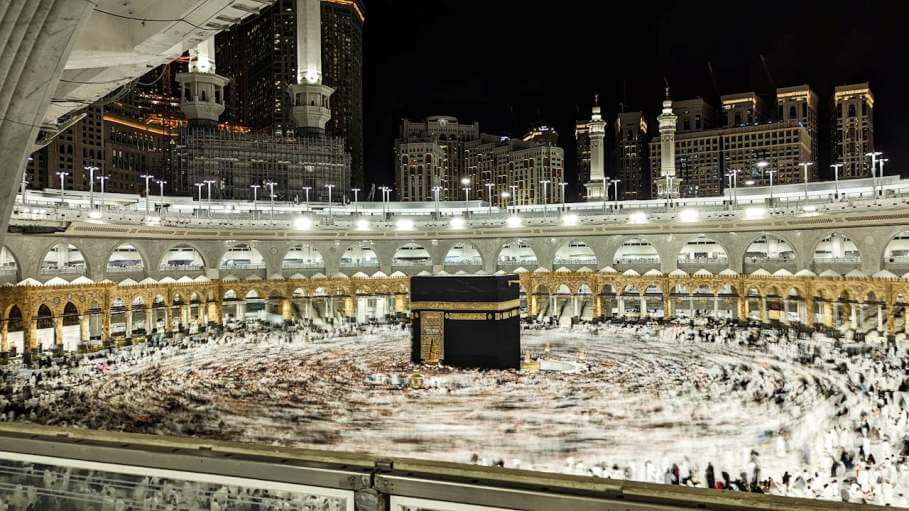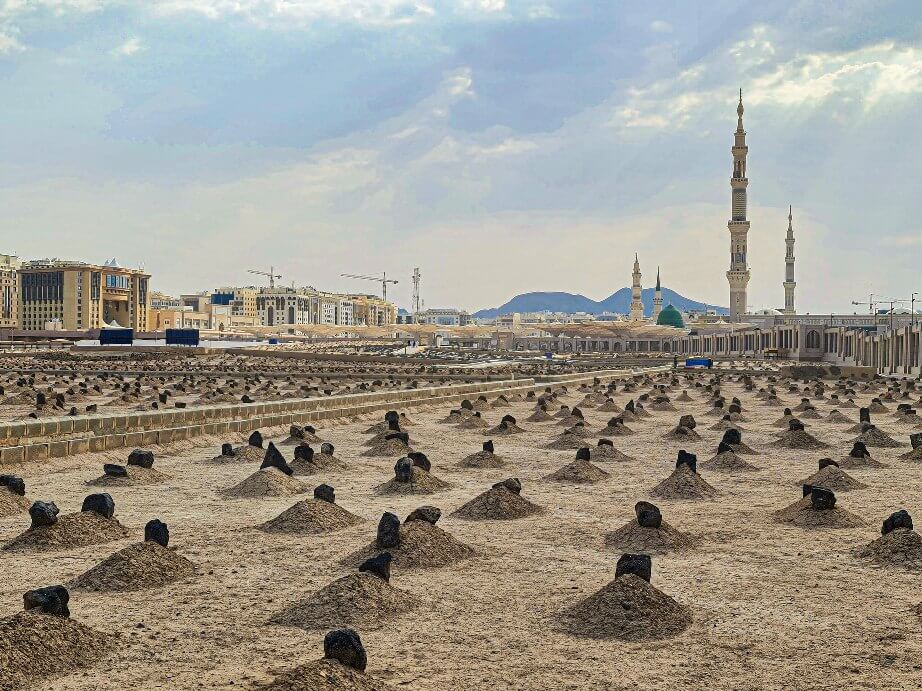Maulana Rafiuddin Deobandi: A Letter to Mahdi and His Devotion to the Divine Mission
Content sourced from DAJJAL KAUN KAHAN KAB, retrieved from Archive.org. | Published on

Rafiuddin Deobandi, a name that resonates in the history of Indian Islam, was not just an esteemed scholar but a man whose faith transcended mere learning. Born in 1836, Rafiuddin became a prominent figure in the early years of the Darul Uloom Deoband, the Islamic seminary that would later shape generations of scholars and students. His legacy, as a man who held the position of Vice-Chancellor of the seminary for significant periods between 1867 and 1889, is cemented in the annals of Islamic education.
However, Rafiuddin’s story is not solely confined to the walls of a seminary or the realm of academia. His journey took a spiritual turn as he sought a deeper connection with his faith, one that led him on an extraordinary path to Mecca and a direct connection to the awaited Hazrat Mahdi.
A Scholar’s Spiritual Quest
Rafiuddin, a disciple of the great Abdul Ghani Mujaddidi, was a scholar whose contributions to the seminary were immense. His commitment to the growth of Darul Uloom Deoband was undeniable, but as the years passed, his heart longed for something greater—something that called him beyond the scholarly halls and into the heart of a divine mission.
As the years unfolded, Rafiuddin began to hear whispers of the coming of Hazrat Mahdi, the long-awaited leader who would emerge in the End Times to restore justice and fight against tyranny. With his deep understanding of Islamic teachings, Rafiuddin knew that the Mahdi would appear in Mecca, the holiest city in Islam. He also knew the prophetic significance of the Al-Shaibi family in relation to the Kaaba—the house of God in Mecca.

The Al-Shaibi family had been entrusted with the sacred keys of the Kaaba, a responsibility handed down by Prophet Muhammad (PBUH). Rafiuddin understood that as long as the Kaaba stood, the Al-Shaibi family would retain the keys. This knowledge filled him with a profound sense of purpose: when Hazrat Mahdi would appear, he would take the bai'ah (pledge of allegiance) from the Muslims, and the keys to the Kaaba would be in the hands of the Al-Shaibi family, just as the Prophet had decreed.
A Devotion Beyond Time
Rafiuddin’s faith was unwavering, and his devotion to Hazrat Mahdi was undeniable. In preparation for the time when Mahdi would rise, he journeyed to Mecca, knowing that this was where his destiny lay. He settled there and awaited the arrival of Mahdi with great anticipation. As time passed, he realized that his life was drawing to a close, and that he may not live to witness the appearance of Hazrat Mahdi. It was then that he decided to act.
With a heart full of devotion, Rafiuddin took a Hamail Shareef (a blessed amulet) and a sword, symbols of his resolve and loyalty. He penned a letter to Hazrat Mahdi, the contents of which reflected his deep connection to the cause:
The Ascetic Rafiuddin Deobandi is present in Mecca, and you are preparing for jihad. There are warriors with you who will receive rewards equal to those of the warriors of Badr. This Hamail Shareef is a gift for you, from Rafiuddin. Please take this sword and gift it to a warrior who will fight on my behalf, so that I, too, may share in the reward from Allah.
This letter was not just a request for recognition but a testament to his belief in the impending mission. Rafiuddin’s faith that the battle of justice led by Hazrat Mahdi would be monumental, even comparable to the famous Battle of Badr, is clear in his words.
A Legacy to Live On
But Rafiuddin did not stop there. He knew that the Al-Shaibi family would play a vital role in the events to come. As such, he entrusted them with his sword and the Hamail Shareef, telling them to preserve these items until the arrival of Mahdi:
Your family will live till the Day of Judgment. This is a gift for Hazrat Mahdi. When I die, give this to your successor, and tell him to pass it on to the next. Let it reach the hands of the Mahdi when he comes, so he may have it as a sign of loyalty from me.
Thus, Rafiuddin’s legacy was not only in his scholarly contributions or his leadership at Darul Uloom Deoband but also in his unwavering belief in the divine plan. His deep devotion led him to prepare for the coming of Hazrat Mahdi, a figure he believed would bring justice and light to the world. His actions, though rooted in a time long past, continue to inspire Muslims today, reminding them of the power of faith, devotion, and anticipation for the fulfillment of God’s promises.
A Final Rest
Rafiuddin passed away in 1890 in Medina, where he was laid to rest in the hallowed grounds of Jannat al-Baqīʿ, a cemetery with profound historical and spiritual significance. His final resting place, like his life, stands as a symbol of his unwavering commitment to his faith, his loyalty to the cause of Islam, and his anticipation of Hazrat Mahdi’s coming.

The story of Rafiuddin Deobandi is a testament to the lengths a devoted scholar and believer will go to in preparation for a greater cause. His life, faith, and actions remind us of the profound impact of loyalty, foresight, and unwavering devotion to the divine mission in the life of every Muslim.